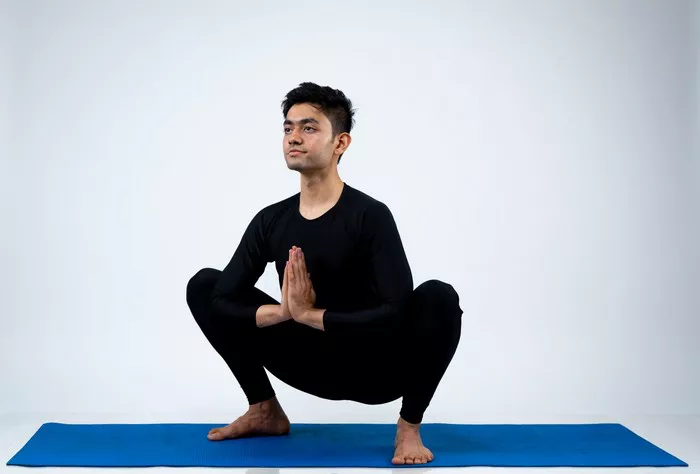Yoga is widely practiced across the globe today, embraced by people of all cultures and beliefs. With its proven benefits for physical health, mental clarity, and spiritual growth, yoga has transcended geographical boundaries. Yet, a question that often arises among practitioners and curious minds alike is: Is yoga considered Hindu? To answer this, we must delve into the origins of yoga, its philosophical roots, how it evolved, and how it is practiced today.
The Origins of Yoga
Yoga has a long and rich history that dates back thousands of years. Its earliest traces can be found in the Indus Valley Civilization, where archaeological findings such as seals depicting figures in yogic postures suggest early meditative practices. These artifacts are estimated to be over 5,000 years old.
The first formal texts that describe yoga in detail are the Vedas, ancient sacred scriptures of India. These texts laid the foundation for many aspects of Indian culture, including religious and philosophical traditions. The Rigveda, one of the oldest of these texts, contains hymns that allude to practices of contemplation, meditation, and breath control—elements that are foundational in yoga.
Over time, these early ideas evolved and were elaborated upon in the Upanishads, particularly the “Yoga Upanishads,” which delve deeper into the spiritual aspects of yoga. However, the most systematic treatment of yoga is found in the “Yoga Sutras of Patanjali,” composed around 200 BCE to 400 CE. This text codified yoga into an eight-limbed path (Ashtanga Yoga), covering ethical disciplines (yamas and niyamas), physical postures (asanas), breath control (pranayama), and meditative practices leading to ultimate liberation (samadhi).
Yoga and Hindu Philosophy
To understand whether yoga is considered Hindu, one must grasp the nature of Hinduism itself. Hinduism is not a monolithic religion with a single founder or a central holy book. Rather, it is a complex, pluralistic tradition encompassing a wide array of beliefs, practices, and scriptures. It includes philosophies like Vedanta, Samkhya, and Yoga, among others.
Yoga is one of the six classical schools (darshanas) of Hindu philosophy. It is closely linked with Samkhya philosophy, which outlines a dualistic framework of consciousness (purusha) and matter (prakriti). Patanjali’s Yoga Sutras adopt this framework and focus on methods to disentangle the self from material entanglements.
Despite these deep connections, yoga, as outlined in the Yoga Sutras, does not mandate worship of specific deities or adherence to rituals. It is more of a systematic methodology for self-realization. While many Hindus practice yoga and see it as a spiritual tool consistent with their beliefs, the practice itself is not exclusive to Hinduism.
Shared Roots with Other Indian Traditions
It is also essential to recognize that yoga is not the sole domain of Hinduism. Other Indian religions such as Buddhism and Jainism have adopted and adapted yogic practices. For example, Buddhist meditation techniques and Jain ethical disciplines share considerable overlap with yogic principles.
These shared roots reflect the interwoven cultural and spiritual fabric of ancient India, where ideas flowed freely among different traditions. Hence, while yoga has Hindu origins and associations, it also belongs to a broader Indic context.
The Globalization of Yoga
In the late 19th and early 20th centuries, Indian spiritual teachers began to introduce yoga to the West. Swami Vivekananda, one of the most prominent figures in this movement, emphasized the philosophical and meditative aspects of yoga. Later, teachers like B.K.S. Iyengar, Pattabhi Jois, and T.K.V. Desikachar brought various forms of Hatha Yoga to the global stage, emphasizing physical postures and breath control.
As yoga spread across the world, it underwent transformation. In many modern contexts, yoga is practiced primarily for health and wellness, often stripped of overtly religious elements. Studios offer classes focusing on flexibility, strength, and stress reduction, with little to no mention of Hindu philosophy.
This secularization has made yoga accessible to people from all backgrounds. However, it has also sparked debates about cultural appropriation and the importance of acknowledging yoga’s roots.
Is Practicing Yoga a Religious Act?
Whether yoga is a religious act depends on how it is practiced. For some, yoga is a spiritual discipline closely tied to their Hindu faith. For others, it is a holistic health practice devoid of religious content. The intention of the practitioner plays a significant role.
In its essence, yoga is a tool. Just like a musical instrument can be used to play sacred hymns or secular songs, yoga can serve various purposes depending on the user. The core of yoga is about union—of body, mind, and spirit—and this goal is not confined to any single religious framework.
Yoga’s Universal Appeal
One of yoga’s greatest strengths is its adaptability. It offers something for everyone, regardless of age, background, or belief system. You can approach it as a workout, a meditation practice, a spiritual journey, or all of the above.
For many, yoga becomes a doorway to deeper self-awareness and compassion, values that resonate across cultures and faiths. In this way, yoga acts as a bridge rather than a boundary, inviting people to connect with themselves and others more deeply.
Acknowledging the Roots, Embracing the Present
While it is important to recognize and respect yoga’s Hindu roots, it is equally vital to acknowledge how yoga has evolved. Yoga’s journey from the forests of ancient India to urban studios around the world is a testament to its enduring relevance and adaptability.
Being mindful of yoga’s origins does not mean that only Hindus can or should practice yoga. Rather, it encourages a respectful and informed approach. Understanding where yoga comes from enhances our practice and fosters a sense of gratitude for the tradition.
Conclusion
So, is yoga considered Hindu? The answer is nuanced. Yoga originates in the Hindu tradition and is deeply embedded in its philosophy. However, it is not confined to Hinduism. Yoga has been shaped by multiple Indian spiritual paths and continues to evolve in global contexts.
Whether you see yoga as a spiritual practice, a physical discipline, or a path to personal growth, it remains a powerful tool for transformation. Its roots are in Hindu soil, but its branches reach across the world, offering shade and strength to all who seek it.
Ultimately, the essence of yoga transcends labels. It is an invitation to know oneself, to cultivate inner peace, and to live with greater awareness—goals that are universal in nature.
Related Topics:

















